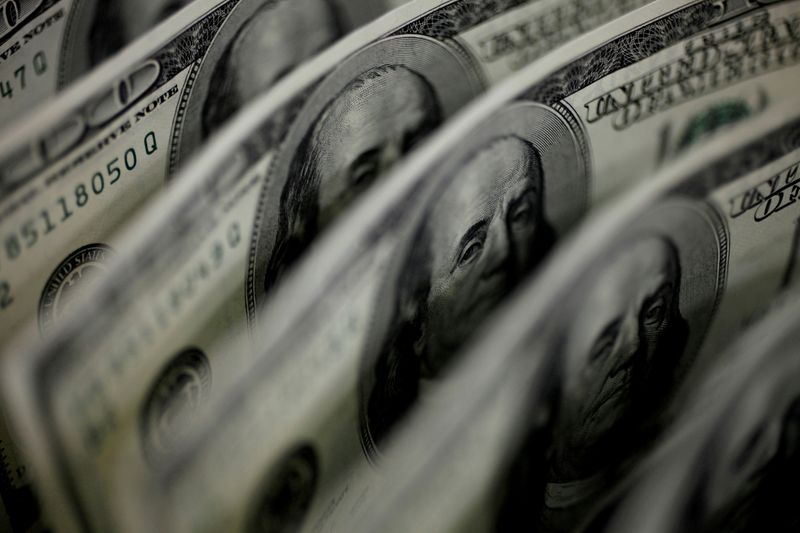By Saqib Iqbal Ahmed
NEW YORK (Reuters) - The U.S. dollar rose against a basket of currencies on Thursday as increased restrictions in parts of the world to contain the spread of COVID-19, including the new Omicron variant, tempered investors' appetite for riskier currencies.
The U.S. Dollar Currency Index was up 0.3% at 96.233.
"We are seeing some caution in the markets because of Omicron. I think the worry that it would be worse than Delta has waned but the reports about how easily transmissible the strain is have caused extra caution," said John Doyle, vice president of dealing and trading at FX payments firm Tempus Inc.
"There are worries about how governments could react, and the UK's 'Plan B' is a great example."
British Prime Minister Boris Johnson on Wednesday imposed tougher COVID-19 restrictions in England, ordering people to work from home, wear masks in public places and use vaccine passes to slow the spread of the new variant.
Johnson said Omicron was spreading rapidly and he had no choice but to move to "Plan B" while a vaccine booster program is accelerated.
"Risk is off for the first time this week so the greenback is up against the entire G10 except for the safe-haven yen," Doyle said.
The dollar was 0.2% lower against the Japanese yen.
The greenback was supported by data that showed the number of Americans filing new claims for unemployment benefits dropped to the lowest level in more than 52 years last week as labor market conditions continued to tighten amid an acute shortage of workers.
Investors were also awaiting U.S. inflation data on Friday that could set the tone for the Federal Reserve's strategy on interest rate hikes.
"I think we are seeing some position-squaring ahead of the CPI data tomorrow and the various central bank meetings next week," Doyle said.
With the U.S. Federal Reserve, European Central Bank and Bank of England among those meeting to discuss monetary policy next week, investors will be watching for forward guidance, especially from the Fed. Some analysts expect a faster unwinding of pandemic-era stimulus plans.
On Thursday, China's yuan pulled back from a 3-1/2-year high and was set for its biggest drop in more than four months after the central bank raised foreign currency reserve requirements.

The pound held steady, just above a 2021 low hit on Wednesday when the "Plan B" restrictions were announced.
Bitcoin lost 6.1% to $47,562.34, struggling to find a footing after rebounding from a sharp weekend plunge.